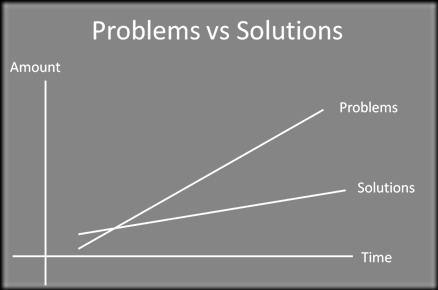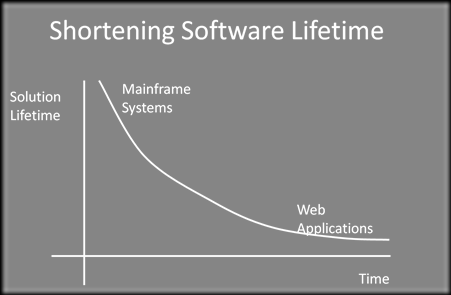Projects failures on the up …
A final thought before the weekend …
I received the 2009 Standish CHAOS report from a colleague the other day that shows yet another jump in project failure rates. I often refer to Standish in my presentations so decided to look at the trends from 1994 when Standish launched their CHAOS report. Thankfully, before getting too far I had the good fortune of finding this post from Jorge Dominquez who had already compiled the following table.
| 1994 | 1996 | 1998 | 2000 | 2002 | 2004 | 2006 | 2009 | |
|---|---|---|---|---|---|---|---|---|
| Successful | 16% | 27% | 26% | 28% | 34% | 29% | 35% | 32% |
| Challenged | 53% | 33% | 46% | 49% | 51% | 53% | 46% | 44% |
| Failed | 31% | 40% | 28% | 23% | 15% | 18% | 19% | 24% |
Jorge concludes that project success is a ‘little worse than in 2006' but definitely better than 1994’ and suggests some reasons for this such as better project management (but he would say that;)). However, I think this conclusion misses an important and significant trend.
I’ve plotted this in the following graph that really illustrates the situation quite neatly. Project failure has consistently increased since 2002 while successes have in reality effectively plateaud overall. Looking at challenged projects, these appear to be reducing and almost mirror the inverse of increase failures suggesting if anything that we might be just getting better at dropping the axe on ailing projects rather than letting them die a long and lingering death through underachievement.
The other thing Jorge notes which I tend to agree with although have little empirical evidence for other than observation is that “complexity and environments have increased while the time to deliver has been reduced”. If you think about it complexity continues to increase but the tools we use have barely really changed in comparison. Add to this shortening timelines would result in more black and white project successes or project failures – there is little point in delivering something that is challenged!
Here’s a couple of slides from a deck I used back in 2007 that illustrates this point quite neatly …


